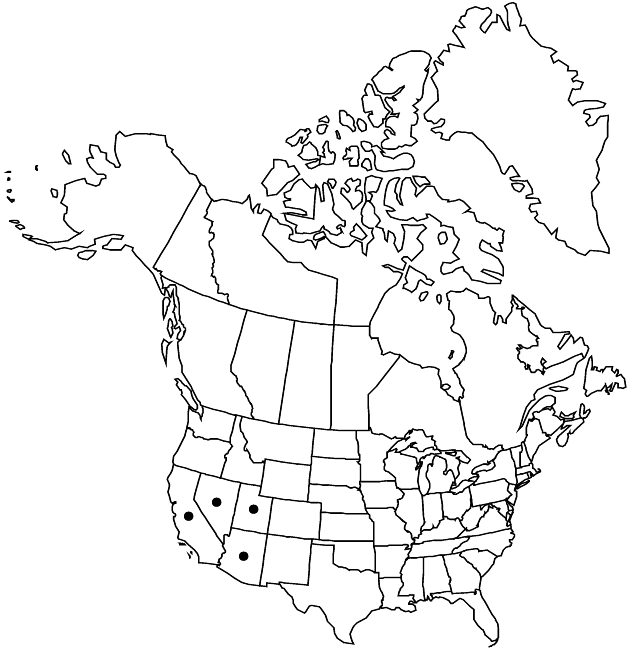Stephanomeria parryi
Proc. Amer. Acad. Arts 19: 61. 1883.
Common names: Parry’s wirelettuce
Endemic
Perennials, 10–30 cm (rhizomes stout). Stems 1–3, branches ascending, glabrous. Leaves green (at least cauline) at flowering; blades linear to lanceolate, shallowly runcinate, 2–6 cm (relatively thick and firm), margins pinnately lobed (thickened, usually minutely, sharply spinose, faces glabrous). Heads borne singly along branches. Peduncles 2–10 mm (bracteate). Calyculi of (6–8) appressed bractlets (unequal, lengths to 1/2 phyllaries). Involucres 10–14 mm. Florets (8–)10–13. Cypselae tan, 4.5–6 mm, (ribs well developed) faces slightly bumpy, grooved; pappi of 10–15, tan bristles (connate in groups of 2–4, bases persistent), plumose on distal 80%. 2n = 32.
Phenology: Flowering May–Jun.
Habitat: Open, sandy and gravelly slopes in Upper Sonoran Zone, many plant communities, desert mountains
Elevation: 700–2000 m
Distribution

Ariz., Calif., Nev., Utah.
Discussion
Selected References
None.
Lower Taxa
None.